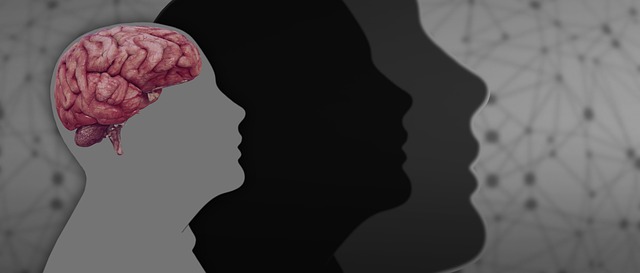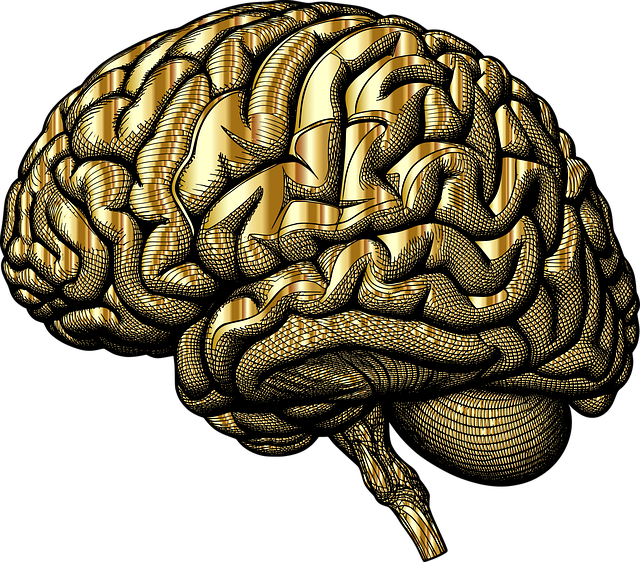Broomfield Neuro Disorders Therapy prioritizes cultural sensitivity as a core principle in mental healthcare, fostering inclusive environments that respect diverse cultural backgrounds. Through community outreach programs, culturally tailored therapeutic approaches, and crisis interventions, they revolutionize care delivery, addressing unique needs and promoting social integration. This holistic approach enhances therapeutic outcomes while ensuring every patient feels valued and supported, especially those with neurodisorders.
In today’s diverse society, cultural sensitivity is a cornerstone in mental healthcare. Understanding and respecting different cultural backgrounds, beliefs, and practices can significantly enhance patient outcomes. This article explores essential aspects of cultural sensitivity, drawing on the Broomfield Neuro Disorders Therapy Approach as a model for embracing diversity. We delve into identifying cultural barriers and facilitators, offering practical strategies for culturally competent practice, and highlighting the profound impact of this approach on mental health care.
- Understanding Cultural Sensitivity: A Cornerstone in Mental Healthcare
- The Broomfield Neuro Disorders Therapy Approach: Embracing Diversity
- Identifying Cultural Barriers and Facilitators in Therapeutic Settings
- Strategies for Culturally Competent Practice: A Practical Guide
- Enhancing Patient Outcomes: The Impact of Cultural Sensitivity in Mental Health Care
Understanding Cultural Sensitivity: A Cornerstone in Mental Healthcare

Cultural sensitivity is a cornerstone in mental healthcare practice, ensuring that Broomfield Neuro Disorders Therapy provides inclusive and effective support for individuals from diverse backgrounds. Understanding cultural nuances allows therapists to create safe, non-judgmental spaces where clients feel respected and heard. This is particularly crucial in addressing mental illness stigma reduction efforts within the community, fostering an environment of trust and openness.
Community outreach program implementation plays a vital role in this process. By engaging with diverse communities through initiatives like Mindfulness Meditation sessions or cultural awareness workshops, Broomfield Neuro Disorders Therapy can better serve their unique needs. This holistic approach not only enhances therapeutic outcomes but also promotes social integration and overall well-being within these communities.
The Broomfield Neuro Disorders Therapy Approach: Embracing Diversity

The Broomfield Neuro Disorders Therapy Approach is a pioneering method that recognizes and embraces the diversity of cultural backgrounds among individuals seeking mental healthcare. This innovative therapy goes beyond traditional practices by understanding that every person’s experiences, beliefs, and expressions of distress are shaped by their unique cultural lens. By adopting this approach, therapists can create a more inclusive environment that fosters trust and encourages open communication.
This method emphasizes the importance of self-esteem improvement and mental wellness through empathy building strategies tailored to each individual’s cultural context. It allows for a deeper understanding of the patient’s experiences, promoting effective treatment plans that resonate with their personal narratives. The Broomfield Neuro Disorders Therapy Approach is transforming the landscape of mental healthcare by ensuring that everyone receives compassionate and culturally sensitive support.
Identifying Cultural Barriers and Facilitators in Therapeutic Settings

In therapeutic settings, particularly within the realm of Broomfield Neuro Disorders Therapy, identifying cultural barriers and facilitators is a cornerstone for effective treatment. Cultural sensitivity involves recognizing and understanding the diverse beliefs, values, and practices that shape individuals’ mental health experiences. For instance, different cultures may have unique interpretations of symptoms, stress, and coping mechanisms. This can significantly impact how clients perceive and engage in therapy. For example, some cultural groups might prefer community-based support over individual therapy, emphasizing collective healing over personal reflection.
Navigating these cultural nuances requires a nuanced approach where therapists serve as cultural navigators. They must be attuned to subtle cues and directly ask about clients’ preferences and concerns regarding their mental health journey. This process can facilitate open dialogue and build trust. Moreover, crisis intervention guidance, emotional regulation strategies, and mood management techniques can be tailored to incorporate culturally relevant practices, ensuring these interventions resonate with the client’s background. Such an inclusive approach not only enhances therapeutic outcomes but also fosters a sense of belonging and respect for diverse cultural backgrounds.
Strategies for Culturally Competent Practice: A Practical Guide

In the realm of mental healthcare, cultural sensitivity is a crucial aspect of providing effective treatment, as it ensures that diverse patient populations receive services tailored to their unique needs and backgrounds. For professionals like those at Broomfield Neuro Disorders Therapy, adopting culturally competent practices involves recognizing and respecting individual and collective cultural identities. This practical guide emphasizes several strategies to enhance cultural sensitivity, fostering inclusive environments that promote mental wellness.
One effective approach is incorporating evidence-based practices such as Stress Reduction Methods and Mindfulness Meditation, which have been shown to be beneficial across various cultures. Additionally, creating and distributing Mental Wellness Podcast Series Production can offer accessible resources for patients from diverse communities, addressing shared challenges and promoting cultural understanding. By integrating these strategies, mental health practitioners can move towards revolutionary changes in care delivery, ensuring that every patient feels seen and heard.
Enhancing Patient Outcomes: The Impact of Cultural Sensitivity in Mental Health Care

Cultural sensitivity plays a pivotal role in enhancing patient outcomes within mental healthcare. It involves understanding and appreciating the diverse cultural backgrounds, beliefs, and values of patients, ensuring that their unique needs are met effectively. By incorporating cultural competency into practice, healthcare providers can create a safe and supportive environment, fostering open communication and building trust. This is particularly crucial for individuals seeking treatment for neurodisorders at Broomfield Neuro Disorders Therapy, where cultural sensitivity can significantly impact the success of interventions.
The integration of cultural sensitivity in mental health care goes beyond token efforts; it requires continuous learning and adaptation. Healthcare provider training programs focused on cultural competency, such as those offered to enhance mental wellness coaching skills, are instrumental. These initiatives ensure that professionals are equipped to navigate complex cultural landscapes, avoid stereotypes, and deliver personalized care. Through such training, mental healthcare providers can better support patients from various ethnic, racial, and socioeconomic backgrounds, ultimately improving access to quality mental wellness services for all.
In conclusion, cultural sensitivity is an indispensable cornerstone in mental healthcare, as highlighted by the Broomfield Neuro Disorders Therapy approach. By identifying and addressing cultural barriers and facilitators, therapists can create a more inclusive and effective environment. Implementing practical strategies for culturally competent practice not only enhances patient outcomes but also fosters better relationships and understanding among diverse communities. Recognizing and embracing diversity is key to revolutionizing mental health care, ensuring that every individual receives respectful and tailored support.














